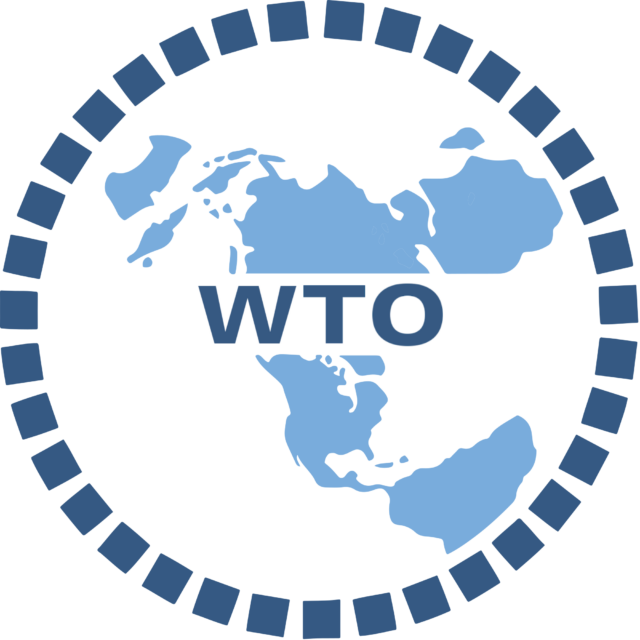Committee Overview
The World Trade Organization (WTO) was founded in 1995 during a time of increased globalization. It is an international governmental organization that helps facilitate trade between countries and hosts negotiations on global trade policy. The WTO was formed to oversee and expand upon the trade conditions outlined in the General Agreement on Tariffs and Trade (GATT) following the Uruguay Round of negotiations. Trade and commerce leaders worldwide agreed on establishing an overarching body to help facilitate trade, promote development, and resolve trade disputes between countries. The WTO is made up of three main bodies: the General Council, the Dispute Settlement Body, and the Trade Policy Review Body. The General Council and Trade Policy Review Body carry out the main functions and responsibilities of the WTO, to promote trade and decrease barriers to trade between countries. The Dispute Settlement Body serves as a forum for countries to bring trade disputes to the WTO for a multilateral resolution. Aside from these three bodies, the Ministerial Conference is the highest authority of the WTO and meets every two years to discuss key trade issues. The Ministerial Conference has the power to make decisions on any of the multilateral trade agreements that the WTO oversees. Each conference hosts negotiations known as “rounds,” with the most recent series of rounds focused on agricultural subsidies. While the most recent Doha Round has yet to be resolved, the WTO continues to monitor global trade and has helped bring the global average tariff rate from 22 percent down to 5 percent.
Topic A: Combating the Rise of Protectionism and Tariffs
In April 2025, United States President Donald Trump announced high tariffs on both large and small countries that traded with the US. This sparked a wave of retaliatory tariffs and major disruptions to thousands of businesses across the globe. Technological trade has also decreased during this period of time. Developed countries have begun to place limits on what technologies can be exported abroad. This is done to protect domestic industries from competition and intellectual property theft from other countries. Many countries have also begun to protect their industries by making it much more difficult for foreign competitors to set up their businesses abroad. These actions have led to a general decline in global trade. The International Monetary Fund forecasts global development growth to slow down to 2.8 percent compared to its original forecast of 3.3 percent. These protectionist policies and tariffs could lead to global economic hardship and is dangerous for the future of free trade. Delegates of the World Trade Organization will need to look into solutions needed to de-escalate the rise in tariffs. The committee must find ways to decrease the need for protectionism and make free trade more accessible to all countries.
Topic B: Promoting Free Trade of Agricultural Products
Globalization has grown at a very fast pace since the 1990’s. This has brought major changes to how goods are transported around the world. Agricultural products have seen some of the most changes in how goods are transported and delivered to grocery stores. Globalization has helped people around the world gain access to many different foreign food products. However, many wealthy countries continue to subsidize their agricultural industries. They have also placed heavy tariffs on agricultural imports from developing countries. This is harmful to free trade because it gives farmers in developed countries an unfair advantage. These farmers can sell their products at lower prices compared to overseas competitors. Many developing countries still rely heavily on their agricultural industry and these tariffs and subsidies hurt their economy. The World Trade Organization was founded to promote free trade and equitable development around the world. Delegates will need to address these barriers to free trade and find ways to help free agricultural product trade benefit all economies.

